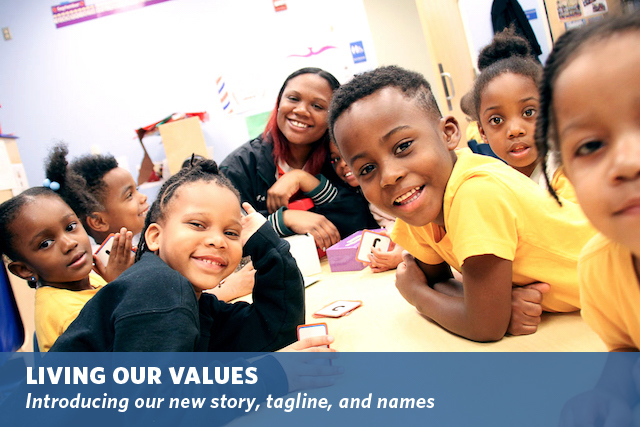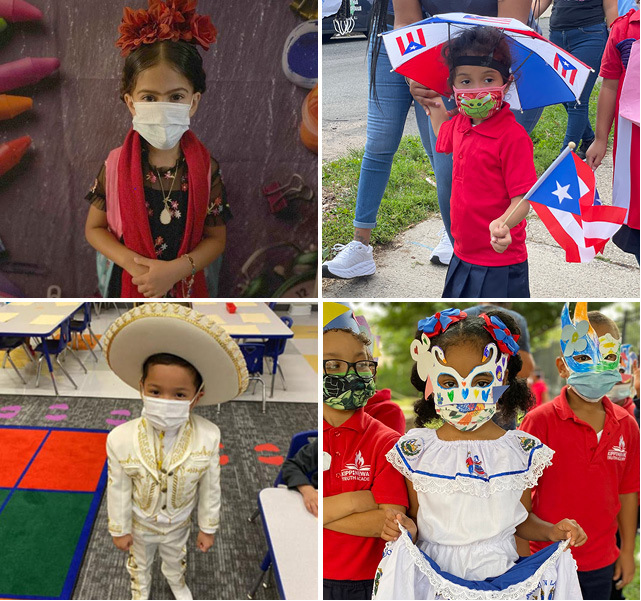Here are five key takeaways from our webinar led by Janet Murguía, President and CEO of UnidosUS, and Richard Barth CEO of the KIPP Foundation.
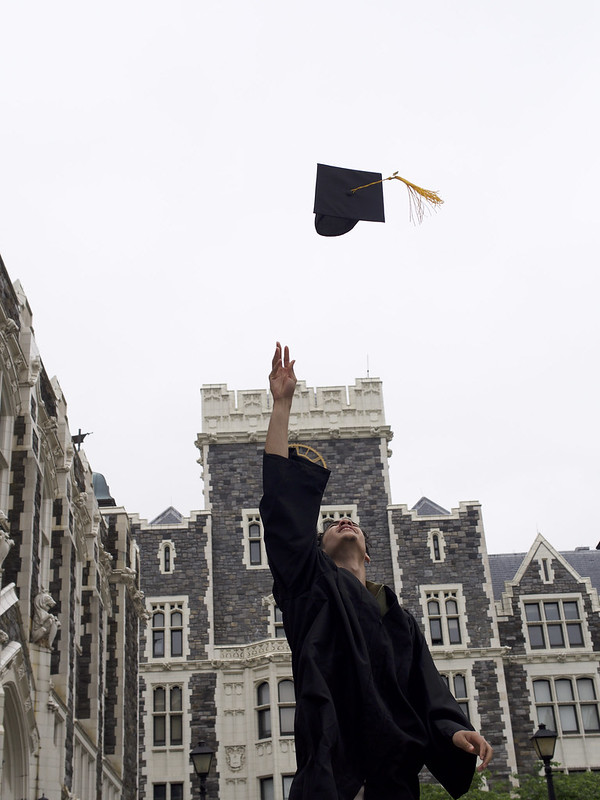
Five Challenges Facing Latinx Students During COVID and Beyond
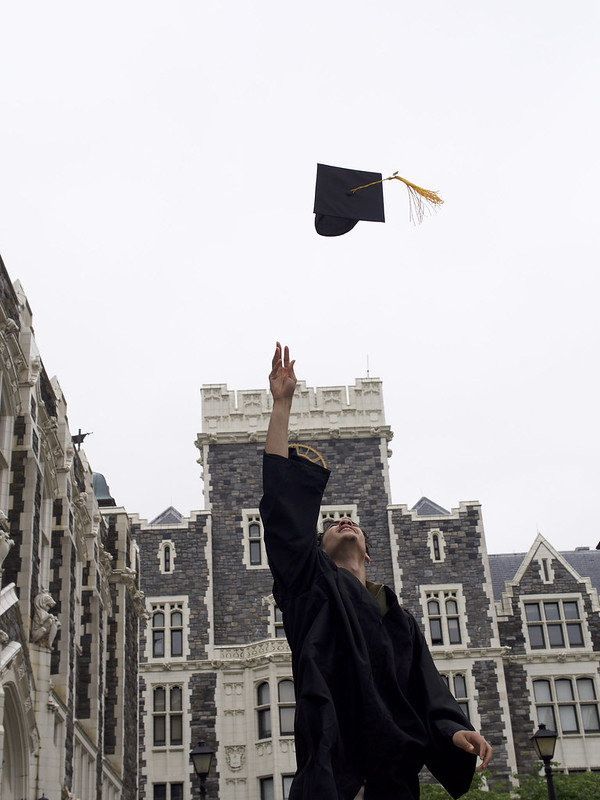
UnidosUS, the country’s largest Latino civil rights and advocacy organization, partnered this summer with the KIPP Foundation to discuss postsecondary challenges that Latinx students are facing during the pandemic as well as potential solutions. In this recent UNIDOS report, the organization detailed the issues Latinx students faced during the pandemic, which KIPP Latinx students faced too, and made recommendations to improve college completion rates. Here are five key takeaways from the webinar led by Janet Murguía, President and CEO of UnidosUS, and Richard Barth CEO of the KIPP Foundation.
1. Being a first-generation Latinx college student significantly shapes students’ college experiences
Approximately 70% of Latinx students are the first in their families to attend college. Navigating the higher education system without having the advantage of familial knowledge increases the difficulty of filling out institutional or financial aid paperwork (such as FAFSA verification), financing their education, and continuing their studies. “Completing the FAFSA, as we all know, is one of the very first steps in really starting that journey to college requires parental tax information and many find the FAFSA form confusing. A lack of familiar experience in or understanding of the complex FAFSA process can result in one of the first barriers and that’s an insufficient financial aid package. So all of this correlates,” said Ms. Murguia during the webinar.
KIPP’s approach to remedying this challenge has been to provide early and sustained support. “Our learning for the last 10 years has been, if we don’t start early with our students, we don’t have a chance of doing this well. So, my biggest message to reinforce in the report that Janet has shared is we need to make sure high schools in America before we’re even talking about higher ed are counseling young people, not the spring of senior year in high school, not the winter of senior year, but starting in 9th and 10th grade,” said Mr. Barth.
2. Financial insecurity affects Latinx students’ postsecondary decision-making on nearly every level
This past year, one-third of KIPP aged 18-24 alumni dealt with food insecurity according to survey data collected by KIPP. The pandemic’s economic crisis intensified Latinx students’ challenges with obtaining basic necessities. “They are concerned about covering basic needs and supporting their families before deciding to enroll or continue their studies. You can imagine a year after the pandemic where so many in our community have taken an economic hit, these decisions have to be weighing even heavier for some of these students as they decide what to do in their future. So, continuing their educational plans in the current state of the world is too much of a financial risk for themselves and their family,” Ms. Murguia explained.
3. Latinx students are driven to attain postsecondary success
Before the pandemic, Latinx students achieved steady gains in enrollment and had the highest postsecondary attainment growth in the US for years, demonstrating their motivation to attend college. However, at KIPP as well as nationwide, college enrollment dropped across the board while persistence declines were less pronounced, Latino males were amongst the most affected. Consequently, KIPP began distributing immediate aid in the form of microgrants to help students acquire necessary financial support and empower them to continue pursuing their postsecondary plans.
KIPP’s investment in the microgrant program has already proved to be a success. 95% of students who received the aid were Black or Latinx, and 90% of them are persisting or graduating. “These micro-grants can be the most catalytic investment and now I think we’re seeing proof that they work as hardcore evidence that policymakers can count on going forward,” said Mr. Barth. As we consider what higher education may look like after the pandemic, it’s crucial to ensure that students can access similar resources for direct support in the future.
4. Latinx students shifted their college plans to attend to family obligations.
Many Latinx students work to support themselves and their families on top of the financial burden that higher education may bestow. According to KIPP survey data, 35% of KIPP alumni, aged 18-24 supported family/community in remote learning.
“We really are going to have to think broadly about what kind of supports can come in, not just for the students, but for their families. It’s why we’ve supported efforts like the American Rescue Plan and the American Families Plan because these students are not siloed. This is not a journey they make alone… I think we saw a lot of our families disproportionately hit from a health perspective because we’re so represented in that essential workforce because we’re from multi-generational homes that one student or any one person in the family is often exposed to others,” explained Ms. Murguia.
5. Latinx students thrive when targeted, institutional support is accessible
According to a UnidosUS report released that focuses on some of the specific challenges that Latinx students have, most students completed or were determined to complete college citing their own driving power of targeted supports and resources that help them finish their programs.
“I think thankfully in the previous COVID relief packages that Congress passed institutions were entrusted with billions of emergency funds to disperse to students as they were experiencing unemployment, unexpected technology costs, healthcare costs, food, and housing insecurity. So, while the field is really still assessing the impact of the emergency grants and institutions effectiveness in targeting, not just those who filled out FAFSA, but a broader group of students struggling to stay enrolled, that small-dollar aid is a proven tool for Latinx students’ ability to stay in complete college. And that’s going to be very important,” explained Ms. Murguia during the discussion.
Learn more by watching a recording of the webinar below.
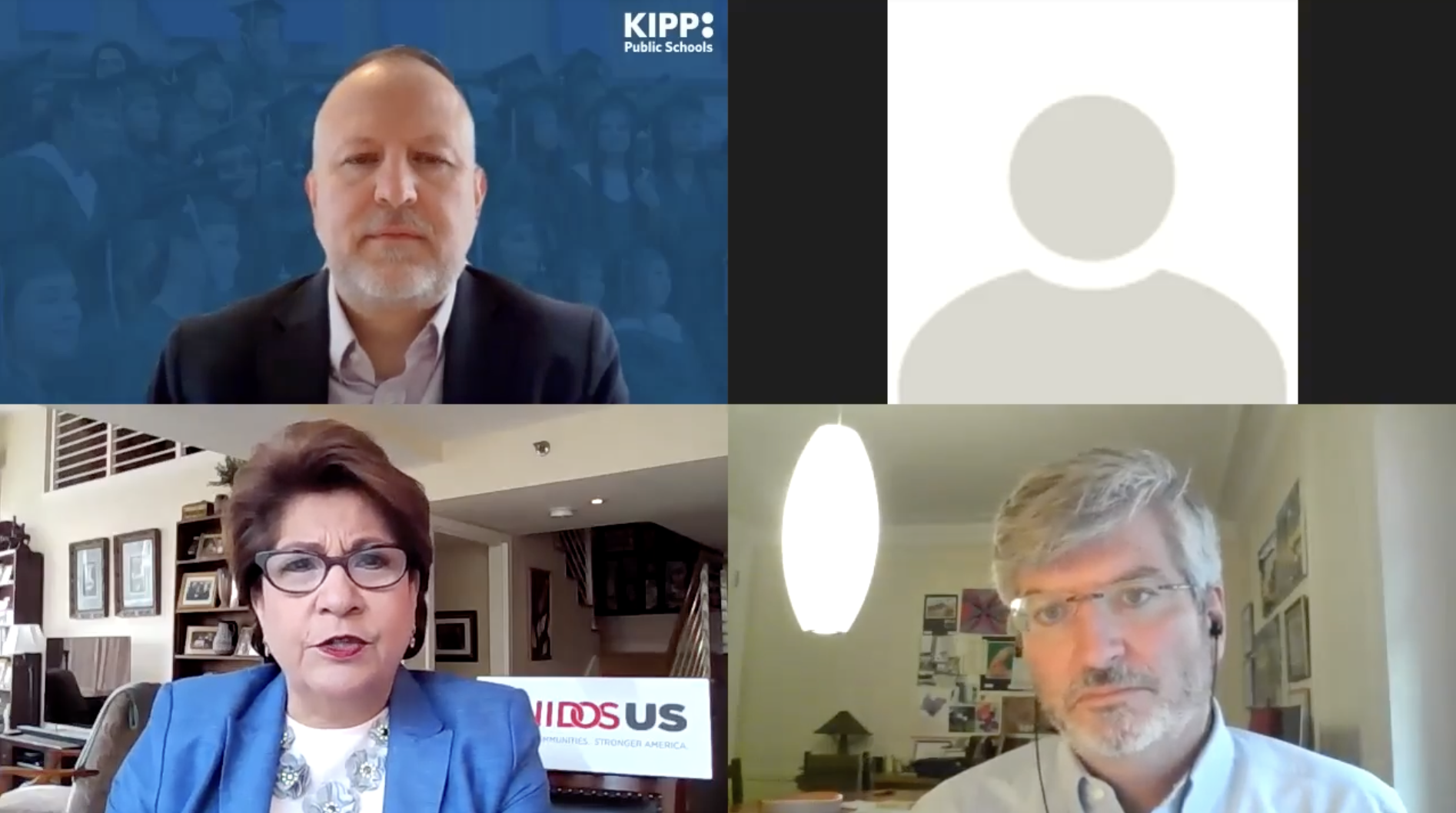
Author: Jalen Moore, Brown University Class of 2022
Jalen is a KIPP Texas Alumni and 2021 KIPP Foundation Communications Intern


